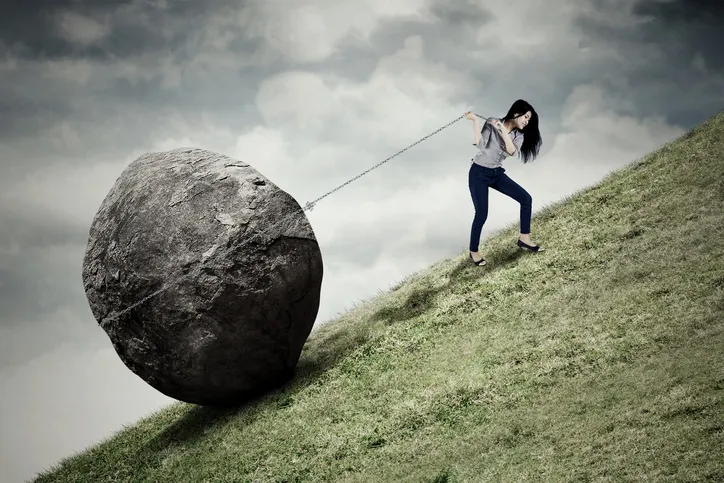Throughout history, individuals and societies have progressed through the constant process of challenge and provocation. These forces push us beyond our comfort zones, question established norms, and force us to confront the status quo. To challenge and provoke is to demand growth, both personally and collectively, fostering a world where innovation, justice, and creativity thrive.
The Role of Challenge in Growth
Challenges are an essential part of human life. Without them, we remain stagnant, trapped in routines, and unwilling to explore new possibilities. Challenges push us to evolve. Whether in the form of personal trials, intellectual puzzles, or social obstacles, challenges present us with opportunities to learn and improve.
On a personal level, challenges often come in the form of setbacks, failures, or difficult decisions. These moments test our resilience and resourcefulness. It is in overcoming challenges that we build character, gain new skills, and deepen our understanding of ourselves and the world around us.
Consider the challenges faced by great innovators like Thomas Edison, who failed numerous times before successfully inventing the light bulb, or by civil rights leaders who endured unimaginable hardships to create a more just society. In both cases, challenges became the catalysts for transformation. Without challenge, there is no growth.
Provoke: The Catalyst for Change
While challenges test our abilities, provocation pushes us to rethink deeply held beliefs and question established systems. To provoke is to stir up disruption and create dissonance. This is often uncomfortable but necessary, as it forces us to critically examine what we take for granted.
In the world of ideas, artists, thinkers, and activists have long used provocation to spark conversations and ignite movements. Take, for example, the work of Pablo Picasso, whose provocative art challenged traditional forms and opened the door to modernism, or the speeches of Malcolm X, which provoked thought and debate about race, justice, and identity in America.
Provocation is not about being contrary for the sake of conflict; rather, it is about opening the door to new perspectives. When we are provoked, we are encouraged to reassess what we believe, often discovering that our views are either outdated, incomplete, or in need of refinement.
The Intersection of Challenge and Provocation
At their best, challenge and provocation work together to inspire deep and lasting change. Challenging systems that are unjust or broken requires bold provocative actions. Movements for social change—whether they be the fight for women’s rights, environmental justice, or LGBTQ+ equality—often begin with a provocation that forces people to acknowledge a challenge to the current order.
For instance, the Civil Rights Movement in the United States was both a challenge to the laws and policies that upheld racial segregation, and a provocation to the cultural mindset that allowed discrimination to flourish. Figures like Rosa Parks and Martin Luther King Jr. provoked public consciousness by refusing to accept the unjust status quo, and their actions challenged both law and social norms, paving the way for progress.
Why We Resist Challenges and Provocations
Even though challenges and provocations are necessary for growth and change, many of us instinctively resist them. Why? Because they threaten our comfort and security. We prefer stability and predictability, and the unknown can be frightening. Challenges force us to face failure, while provocations force us to question beliefs we have long held dear. This resistance is natural, but it is often the very thing that prevents us from experiencing profound breakthroughs.
Overcoming this resistance requires a mindset of openness and adaptability. It is about embracing discomfort as part of the learning process and recognizing that true progress comes from facing and overcoming obstacles rather than avoiding them.
Challenge and Provoke in the Modern World
In the modern world, both challenge and provocation play a critical role in shaping societal conversations and driving progress. Social media, for example, has become a platform where provocative ideas spread rapidly, challenging existing power structures and giving voice to marginalized groups.
At the same time, modern challenges like climate change, political polarization, and economic inequality require us to challenge not only our governments and institutions but also ourselves. We must provoke new ways of thinking, challenge outdated paradigms, and be willing to step outside of our comfort zones if we are to address the pressing issues of our time.
In the workplace, leaders who seek to innovate often encourage their teams to challenge assumptions and provoke creative thinking. The most successful companies thrive on an atmosphere where ideas can be tested, challenged, and built upon through constructive criticism and bold questioning.
Conclusion: Embrace the Challenge, Welcome the Provocation
While challenging and provoking may be uncomfortable, they are the drivers of personal and societal growth. They force us to confront our limitations, think critically, and pursue a higher level of understanding. Whether we are challenging our own fears or provoking change in society, the willingness to embrace these forces shapes our evolution.
The world needs more people willing to ask tough questions and tackle difficult challenges. By welcoming both challenge and provocation, we open the door to creativity, innovation, and lasting progress. In doing so, we not only grow as individuals but also contribute to the collective advancement of humanity.




